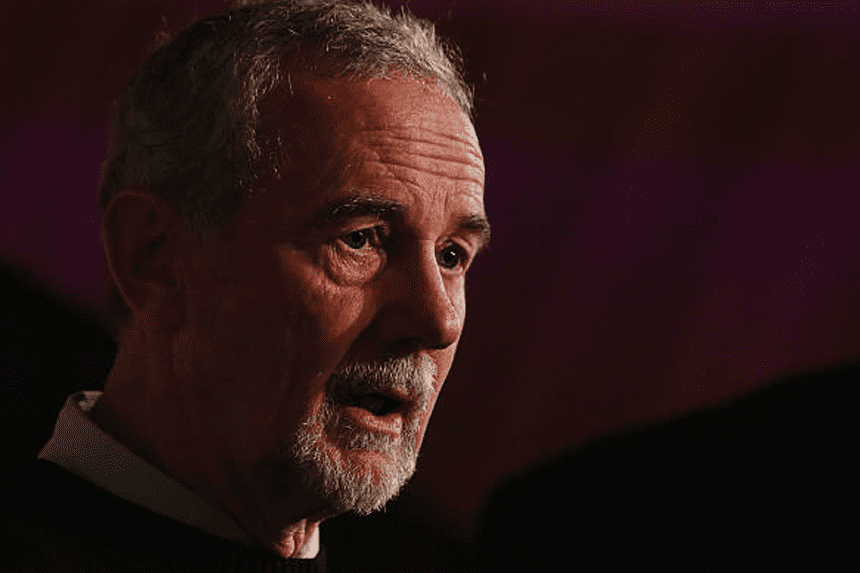The announcement of Robert Wall’s assisted dying has given voluntary assisted dying in Australia great prominence. Celebrated AFL player, coach, and pundit Walls chose this road following a protracted and brave fight with a rare type of blood cancer. His choice not only reflects significant facets of patient rights, medical ethics, and end-of-life choices but also is quite personally relevant.
- Who was Robert Walls, and why is his assisted dying significant?
- What medical condition resulted in Robert Wall's assisted dying?
- What Legal Provisions Cover Robert Wall's Assisted Dying?
- How Does RoberWalls' Assisted Dying Change Healthcare and Public Opinion?
- What lessons might society pick up from Robert Walls's assisted dying?
- Finally: The Ongoing Effects of Assisted Death
The narrative of Walls offers insightful analysis of how assisted dying legislation can impact people with terminal illnesses as more countries around the globe contemplate or embrace these policies. The medical and legal background of Robert Walls’s judgment, as well as the wider consequences for society and healthcare institutions, are investigated in this paper.
Who was Robert Walls, and why is his assisted dying significant?
Robert Walls was an Australian football icon, not merely an AFL star. Having more than 200 games for the Carlton Football Club, Walls won three premierships in 1968, 1970, and 1972. Later on, he captained the Brisbane Lions and Richmond Tigers as well as guided Carlton to a title in 1987. He became a well-known AFL pundit and media personality following his 1997 coaching retirement.
The impact of walls went much beyond his physical performance. His lifetime love of football developed him into a valued member of the sports scene. News of Robert Walls’ assisted dying is especially moving then. It reminds us that terminal disease impacts all spheres of life and forces us to consider how voluntary assisted dying laws affect people regardless of their public status.
Using such a well-liked person in public to implement assisted dying rules also helps to lower stigma around the topic and promote honest conversation about choices at death. Walls’s choice confirms the right to autonomy and dignity in death for many persons and families facing terminal diagnosis.
What medical condition resulted in Robert Wall's assisted dying?
Robert Walls received an aggressive and unusual diagnosis of acute lymphoblastic leukaemia (ALL) in 2023. Especially in elderly persons, this illness advances quickly and is sometimes difficult to cure. For Walls, the diagnosis signaled the start of a rigorous medical odyssey spanning long hospital stays—probably more than 250 nights over the past two years.
Walls had a prognosis that seriously compromised his quality of life, even with treatment. The sickness took a great emotional toll as well as physically. In this setting, Walls decided to apply Victoria’s voluntary assisted dying rules, which let people with terminal and incurable illnesses quietly die under medical supervision.
His family verified that he passed surrounded by loved ones in his flat with a view of the Melbourne Cricket Ground, the very center of AFL in Victoria. This scene represents his nature in his last moments as well as his lifetime relationship to the sport. Read another article on Assisted Dying Vote
What Legal Provisions Cover Robert Wall's Assisted Dying?
First Australian state to implement voluntary assisted dying rules, Victoria’s laws went into force in 2019. These rules are meant to strike a mix between empathy and rigorous protection. One must have an incurable advanced disease most likely to cause death within six months (or twelve months for neurological diseases), be in excruciating pain, and have decision-making capacity to be eligible.
Two independent doctors must approve the procedure to guarantee the patient’s choice is informed and voluntary. Medical professionals have to follow procedural guidelines to deliver recommended drugs that allow the patient to pass away quietly.
Regarding Robert Walls’ assisted dying, these rules gave him a moral and legal framework allowing him to schedule and control his death. Emphasizing the need for autonomy in end-of-life treatment, his decision was a deliberate and thoughtful one after suffering a protracted illness.
How Does RoberWalls' Assisted Dying Change Healthcare and Public Opinion?
The public’s reaction to Walls’ choice emphasizes how progressively accepted as a valid end-of-life choice voluntary assisted dying is. His narrative moves the experience of terminal disease from numbers and policy discussions to the personal level, effectively humanizing it.
Policymakers and medical experts might find lessons in this situation. It emphasizes the significance of making sure terminally sick people have compassionate care choices with regard for their right to die with dignity, should they so want. Talks about assisted dying may concern difficult ethical issues. But Walls’s decision supports a patient-centered approach that honors personal preferences and values.
His choice also started discussions on how to enhance psychological support for patients and families, as well as palliative care. Laws about voluntary assisted dying exist alongside other care choices to offer complete support rather than substituting for them.
What lessons might society pick up from Robert Walls's assisted dying?
Robert Walls’ assisted dying legacy transcends his football career. It asks society to have honest conversations about tough subjects, including death, suffering, and autonomy. Destigmatizing assisted dying and supporting informed decisions depend on such debates.
The narrative of walls also supports the need for a legislative system to safeguard sensitive patients and allow them to control their deaths. His public profile pushes people to educate themselves about their rights and alternatives and helps to destroy taboos.
Knowing that legal, peaceful choices are available helps families dealing with terminal illness to find comfort. Medical practitioners are advised to respectfully and honestly discuss end-of-life decisions, including the option of voluntary assisted death.
Finally: The Ongoing Effects of Assisted Death
The decision of Robert Walls to use voluntary assisted dying legislation signals a turning point in Australian medical and sports history. His narrative highlights for individuals with terminal disease the need for dignity, compassion, and autonomy. Walls has advanced public knowledge and promoted more complex discussions on end-of-life treatment by freely embracing this alternative.
Robert Walls’s assisted dying will remain a potent illustration of how people could make wise decisions about their own lives and deaths as additional areas contemplate comparable laws. His legacy inspires every one of us to advocate patient rights, enhance access to healthcare, and approach death with compassion and respect.








